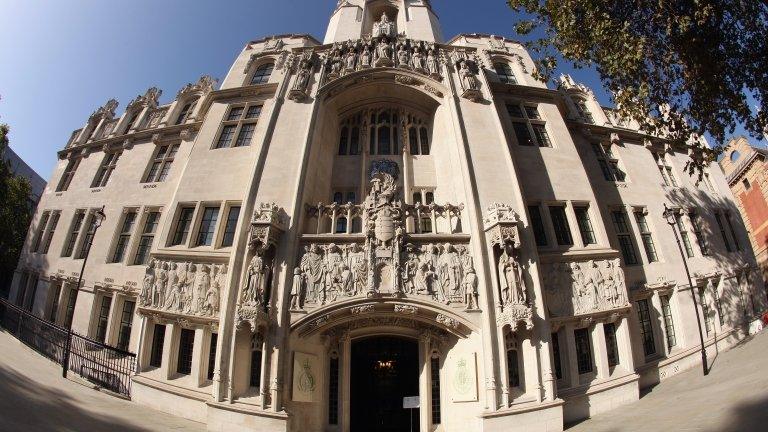Brexit: EU leaders believe new extension is 'likely'
- Published
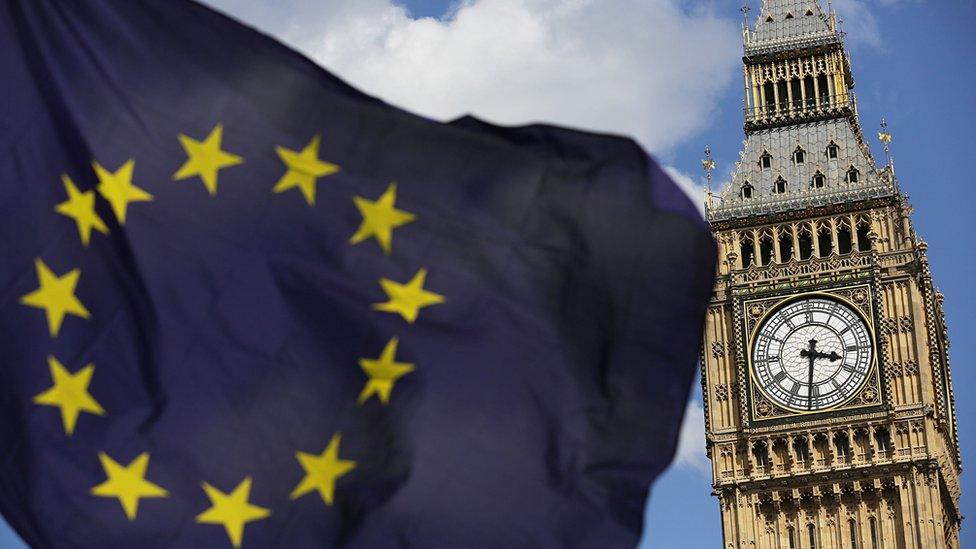
In a Westminster-clad puff of smoke, any residual "maybes" about a new Brexit deal being agreed by mid-October have evaporated in Brussels.
The EU's chief Brexit negotiator, Michel Barnier, is well-known here for having a coffee mug in his office emblazoned with "Keep Calm and Negotiate".
But although EU-UK technical talks have been carrying on at a low level this week, a diplomat from a key EU country described as "pretty much nil" the chances of getting a new deal done and dusted by the EU leaders' summit in a couple of weeks' time.
Mr Barnier repeated again on Thursday that UK ideas to date on how to replace the Irish border backstop have failed - in his opinion - to meet the EU criteria of safeguarding the Northern Ireland peace process and the single market. He said Boris Johnson's proposals might even require the EU to suspend its own rules.
Barnier: UK Brexit proposals must protect peace in Ireland
While Downing Street insists its Brexit proposals are serious and that the onus is also on the EU to make compromises, Brussels seems demotivated.
"Even if we manage to reach an agreement with [Boris] Johnson - which is an outside chance anyway," a diplomat from a southern European country told me, "do we really think that the angry, divided House of Commons will approve a Johnson-brokered Brexit deal?"
The diplomat clearly didn't. And that's important. It means the EU believes there is no point compromising right now.
Brussels is also unconvinced that the prime minister is willing to make what it views as real compromises. They think he wants to keep his hard Brexiteer credentials intact ahead of a general election.
So is the EU assuming that a no-deal Brexit is round the corner?
Not really. EU politicians now believe a new three-month Brexit extension is the most likely next step. And Boris Johnson is right. That belief does take the pressure off them somewhat. It's yet another factor deterring Brussels from offering significant compromises in current negotiations.
But the EU is aware that the route to a new extension is neither straightforward nor guaranteed.
Parliament may have passed a law instructing the government to request a new extension if a Brexit deal isn't reached by mid-October. But if Boris Johnson refuses - as he insists would be the case - then EU leaders would normally listen to him, their peer, as head of Her Majesty's government.
EU sources point at Spain (and the Catalan issue) as to why leaders alone - not parliaments - represent member countries at the EU table.
But as so often when it comes to Brexit, this situation is messy.
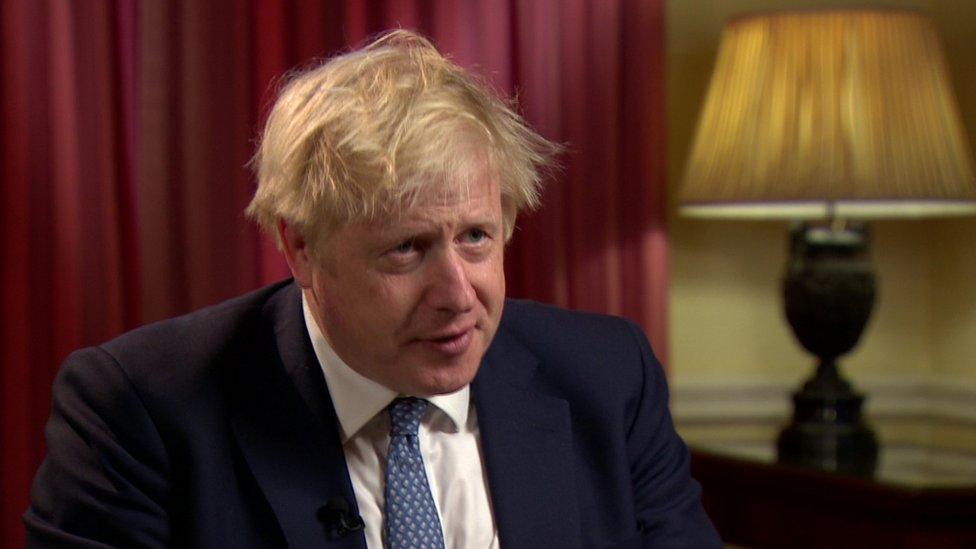
EU diplomats suggest Boris Johnson might refuse an extension and resign after 31 October to stay clear of any political fallout
In fact, EU lawyers won't give a definite answer as to what the EU would definitely do if, with a no deal Brexit looming, parliament demands a new Brexit extension while the prime minister says no.
EU rules on how to deal with a departing country - the so-called Article 50 text - don't specify that an extension request must come from a government but rather from "the member state concerned".
The EU could offer an extension unprompted but the decision to trigger one has to be unanimous amongst EU leaders and the UK.
This is a real nail-biter for EU leaders. They have so wanted to stay out of UK domestic politics, but if and when it comes to the extension debate, they could find themselves slap bang in the middle of the fight between parliament and the PM.
Always keen to kick the can down the road when agreement can't yet be reached, EU diplomats muse that, with his options dwindling, Boris Johnson could choose to make a big stand at the October summit, ostentatiously refusing to ask for an extension when he meets with EU leaders (to score points with hard-line Brexiteers at home) and then resign. This would allow him to keep his hands clean of any extension, while a caretaker government requests one.
EU hopefuls cite this hypothetical scenario as a reason not to give up. A three-month extension, they say, could allow time to agree a compromise Brexit deal with the UK by the end of the year.
Or not. Glued as they are to watching the heated House of Commons scenes on their screens, EU insiders readily admit no-one has a clue what might happen in UK politics right now from one day to the next.
- Published20 September 2019
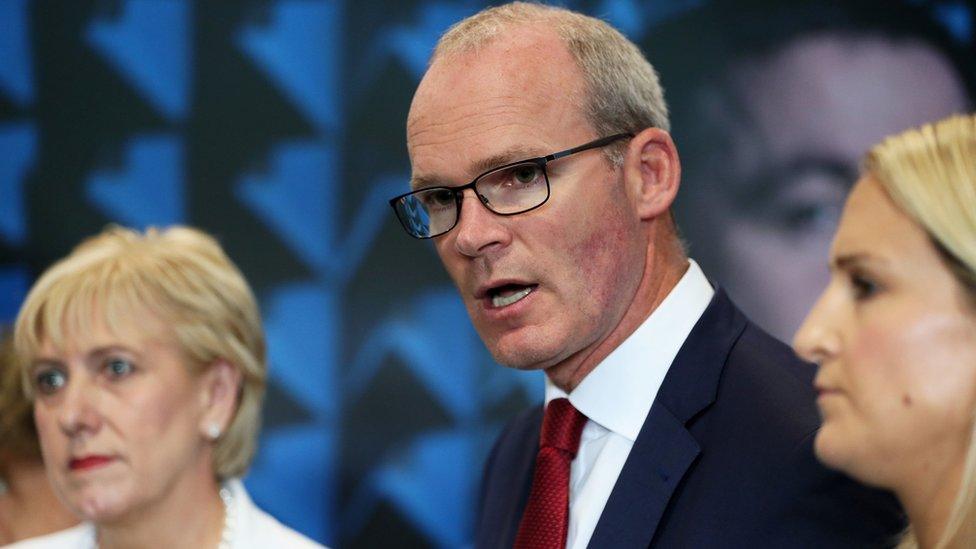
- Published20 September 2019
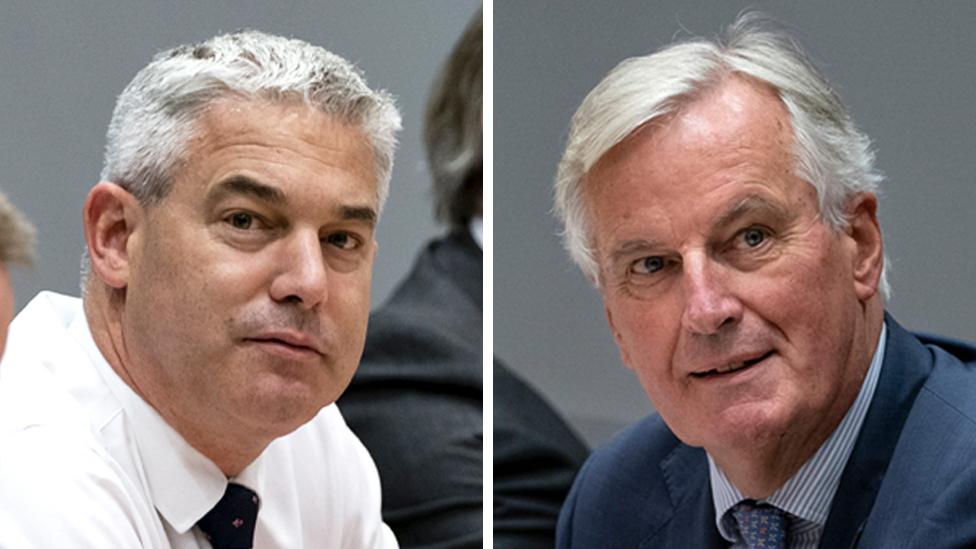
- Published19 September 2019
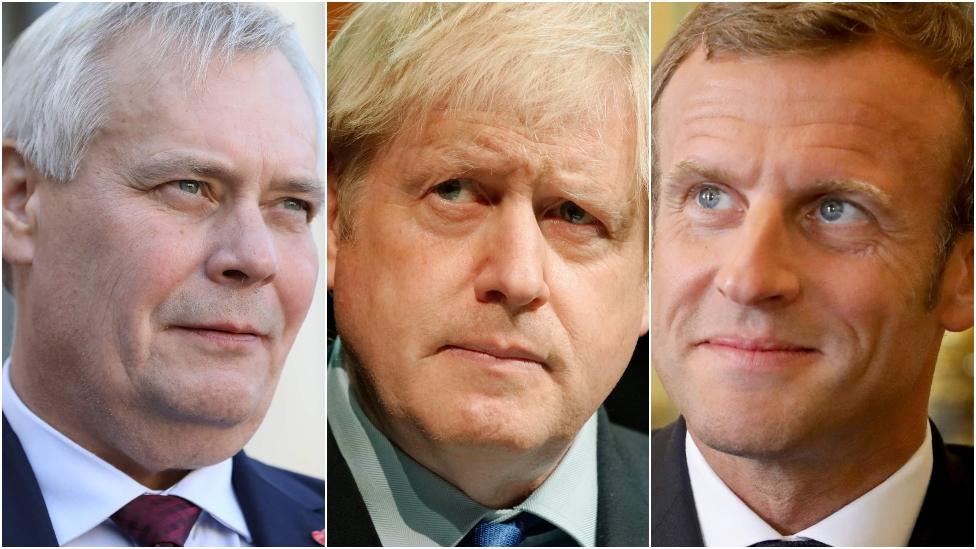
- Published17 October 2019
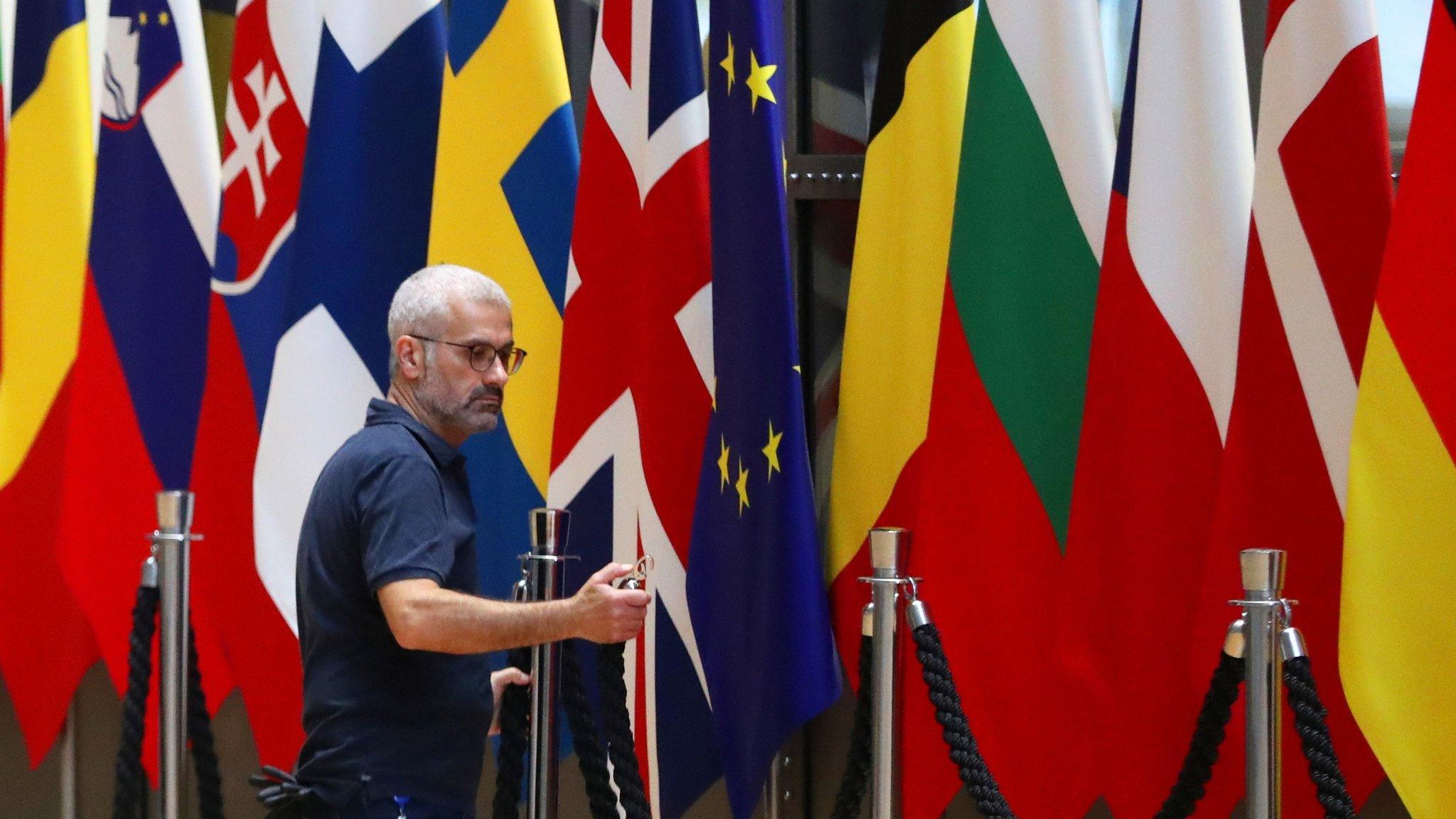
- Published23 September 2019
